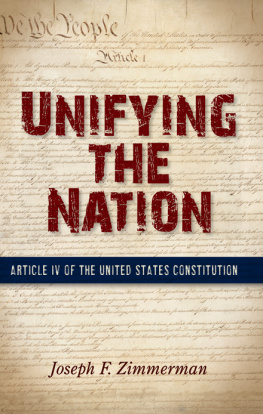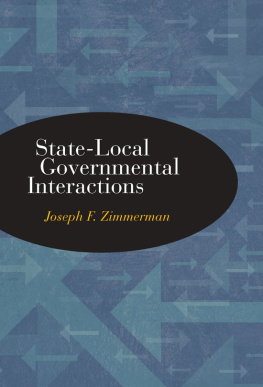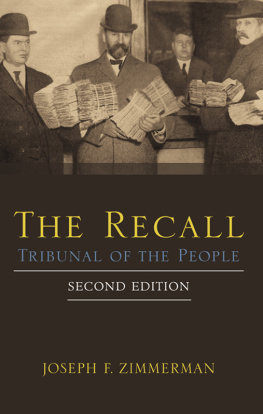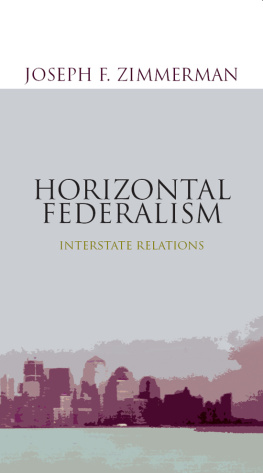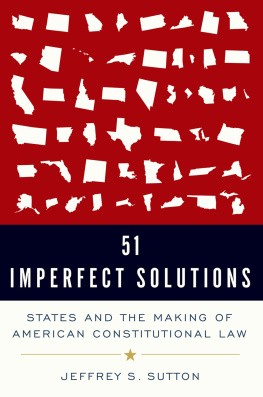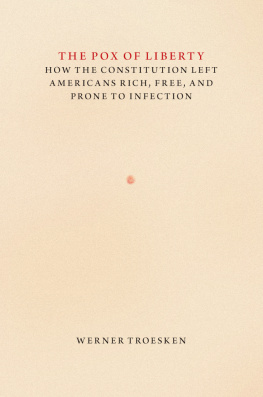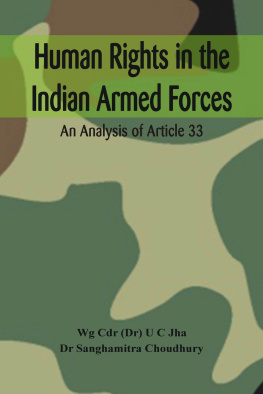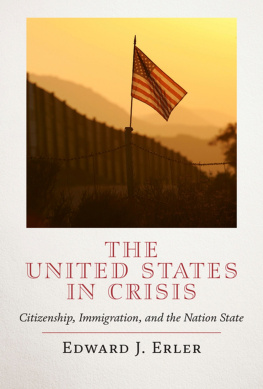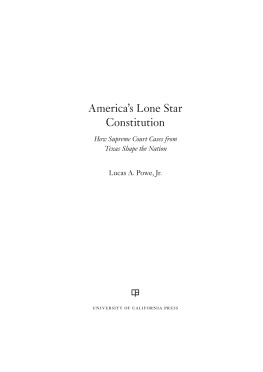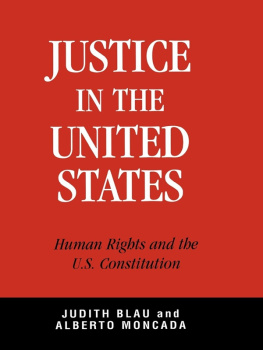Unifying the Nation
Unifying the Nation
Article IV of the United States Constitution
JOSEPH F. ZIMMERMAN
Published by State University of New York Press, Albany
2015 State University of New York
All rights reserved
Printed in the United States of America
No part of this book may be used or reproduced in any manner whatsoever without written permission. No part of this book may be stored in a retrieval system or transmitted in any form or by any means including electronic, electrostatic, magnetic tape, mechanical, photocopying, recording, or otherwise without the prior permission in writing of the publisher.
For information, contact State University of New York Press, Albany, NY
www.sunypress.edu
Production, Emily Keneston
Marketing, Michael Campochiaro
Library of Congress Cataloging-in-Publication Data
Zimmerman, Joseph Francis, 1928 author.
Unifying the nation : Article IV of the United States Constitution / Joseph F. Zimmerman.
pages cm
Includes bibliographical references and index.
ISBN 978-1-4384-5459-7 (hardcover : alk. paper)
ISBN 978-1-4384-5460-3 (ebook)
1. United States. Constitution. In Article 4. 2. Privileges and immunitiesUnited States. 3. Conflict of lawUnited StatesStates. 4. Judgments, ForeignUnited StatesStates. I. Title.
KF4605.Z56 2015
342.73029dc23
2014007250
10 9 8 7 6 5 4 3 2 1
For Deirdre A. Taylor with Love
Contents
Preface
A federal system of governance is epitomized by its inherent complexity and the systems success is highly dependent on cooperative interstate relations ensuring that sojourners generally are treated by a state government in the same manner that state citizens are treated. Experience with the Articles of Confederation and Perpetual Union in the period from 1781 to 1789 convinced the drafters of the United States Constitution to include two clauses in article IV mandating state equality of treatment of sojourners and state residents.
Section 1 of article IV stipulates: Full Faith and Credit shall be given in each State to the Public Acts, Records, and Judicial Proceedings of every other State. And the Congress may by general laws prescribe the Manner in which such Acts, Records, and Proceedings shall be proved, and the Effect thereof. This clause is complemented by section 2 of article III, which grants diversity of citizenship jurisdiction to U.S. courts in cases where the parties reside in different states. In the event that there is a conflict between the laws of two states, a U.S. court or a state court must displace the law of one state with the law of the second state.
Section 2 of article IV declares: The Citizens of each State shall be entitled to all Privileges and Immunities of Citizens in the several States. This clause, in common with the Full Faith and Credit Clause, promotes interstate citizenship, thereby promoting an economic union and a political union of the states.
The complexity of each clause necessitates U.S. court interpretation, state court interpretation, or both. The failure of Congress to exercise fully its constitutional authority under the Full Faith and Credit Clause to enact general laws prescribing the Manner in which such Acts, Records, and Proceedings shall be proved, and the Effect thereof has resulted in the U.S. Supreme Court issuing opinions clarifying the Clause since 1813. The Court also has issued opinions interpreting the Privileges and Immunities Clause in certain cases to allow a state to discriminate against nonresidents. Nevertheless, each clause reduces the semisovereignty of each of the fifty states, and promotes the establishment of a national economic union and a national political union in which each citizen of a state and a sojourner generally have equal privileges and immunities, with a small number of exceptions.
Acknowledgments
Collecting information on the Full Faith and Credit Clause and the Privileges and Immunities Clause of article IV of the United States Constitution is a major task. I acknowledge the assistance of Barbara Mathews in facilitating the collection of the necessary information. I thank Laura Glenn for her copyediting of the manuscript. Any errors of fact or misinterpretations, of course, are solely my responsibility.
1
Unifying a Federal Nation
Full faith and credit letters of credence were employed in diplomatic practice during the Middle Ages. Historically, full faith and credit is rooted in what is termed private international law, comity, and conflict-of-laws, and is based on judicial decisions and the writings of judges.
Kurt H. Nadelmann researched the use of full faith and credit during the colonial period and discovered (1) a 1639 Connecticut act providing for full faith and credit in other colonies, (2) a 1715 Maryland statute according full faith and credit to judgments on debts rendered by courts of sister colonies, (3) a 1731 South Carolina act granting full faith and credit to bonds, deeds, and records of any of his majestys plantations in America, and (4) a 1774 Massachusetts act granting full faith and credit to debt judgments of courts in sister colonies.
The Second Continental Congress, which prosecuted the Revolutionary War, recognized the importance of congenial relations between the thirteen states. In consequence, the Congress adopted a resolution providing full faith and credit shall be given in each of these states to the records, acts, and judicial proceedings of the courts and magistrates of every other state. This resolution was included as article IV in the Articles of Confederation and Perpetual Union, and became effective in 1781.
The worlds first federal system was established in 1789, when the ninth state, New Hampshire, ratified the proposed U.S. Constitution, which divides exercisable powers between the newly established general government and the state governments. The fundamental document delegates specified powers to Congress and other specified powers to the president, reserves the remaining exercisable powers to the states, and authorizes state legislatures to exercise other specified powers with the consent of Congress. A number of powers are concurrent powers that are exercisable by Congress and by state legislatures, as illustrated by the power of taxation.
Included among the reserved powers is the English common law and equity, which states had employed as colonies and as independent nations prior to the ratification of the U.S. Constitution. The common law is a remedial law that includes the police power definable in broad terms as the power of each state to regulate persons and properties in order to protect and promote public health, safety, welfare, morals, and convenience. Equity is a supplement to the common law designed to prevent threatened wrongs from occurring.
The articles full faith and credit provision was incorporated in section 1 of article IV of the U.S. Constitution in nearly identical language: Full faith and credit shall be given in each state to the public acts, records, and judicial proceedings of every other state. Delegates to the constitutional convention of 1787 in Philadelphia were men of wealth and property. The suggestion has been advanced that the clause was added to the Constitution to protect creditors against debtors who move to other states. James Madison in the Federalist, no. 42 argued that the clause would be a very convenient instrument of justice, and be particularly beneficial on the borders of contiguous states, where the effects liable to justice may be suddenly and secretly transformed in any stage of the process, within a foreign jurisdiction. His comment is preceded by a paragraph on the delegation of the power to Congress to regulate bankruptcies, thereby suggesting a linkage between debt and full faith and credit. Article VI of the U.S. Constitution, providing for the assumption by the new government of debts contracted prior to the Constitution, suggests that the delegates were concerned with the protection of creditors.

